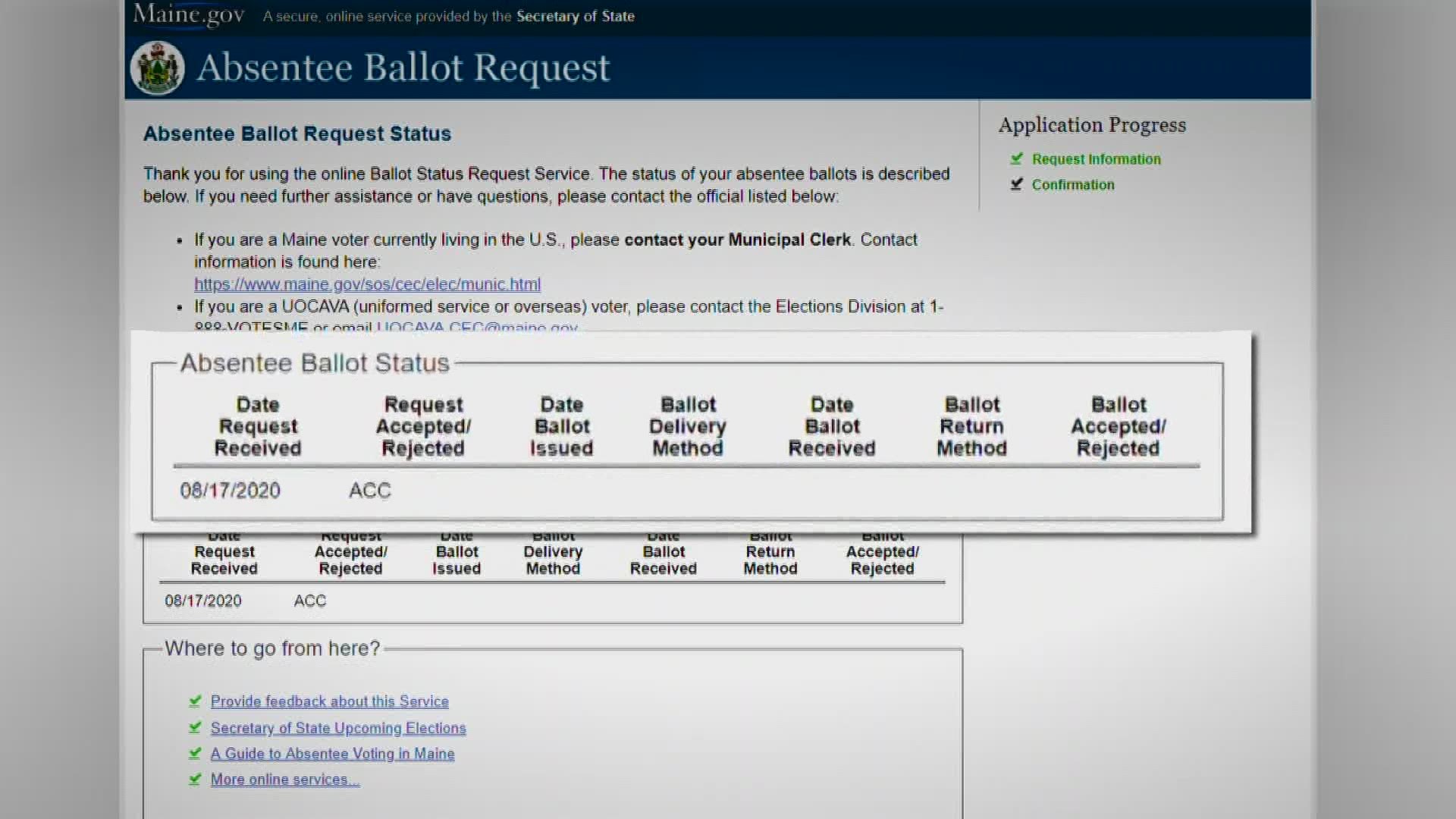Post-Election Audit Pilot Program Begins In Maine

Table of Contents
The Goals of Maine's Post-Election Audit Pilot Program
The overarching goals of Maine's Post-Election Audit pilot program are threefold: to increase the accuracy of election results, enhance transparency in the electoral process, and ultimately bolster public trust in the fairness and integrity of elections. This initiative seeks to modernize Maine's election auditing procedures, moving beyond traditional methods to embrace more robust and reliable techniques.
- Improve the efficiency and effectiveness of post-election audits: The pilot program aims to streamline the audit process, making it faster, more efficient, and less resource-intensive while maintaining accuracy. This includes exploring new technologies and methodologies.
- Enhance public confidence in the accuracy of election outcomes: By implementing a rigorous and transparent audit process, Maine seeks to reassure voters that their ballots are accurately counted and that election results are reliable. This increased confidence is vital for maintaining a healthy democracy.
- Identify and address potential vulnerabilities in the election process: The audit process will serve as a valuable tool for identifying weaknesses in the current system, allowing for proactive improvements and preventative measures to be implemented. This includes addressing potential points of failure or manipulation.
- Explore the feasibility and cost-effectiveness of different auditing methodologies: Maine will compare various audit techniques to determine the most effective and cost-efficient approach for future statewide implementation of post-election audits. This includes a comprehensive cost-benefit analysis.
- Provide a model for other states considering similar initiatives: The findings and experiences from Maine’s pilot program will serve as a valuable resource for other states interested in implementing similar post-election audit programs. This will contribute to national best practices in election administration.
Specifics of the Pilot Program: Methodology and Scope
The specifics of Maine’s Post-Election Audit pilot program are crucial to its success. The exact methodology employed will be transparently reported, allowing for scrutiny and evaluation. Information about the chosen methodology (e.g., risk-limiting audit, full hand count, or a hybrid approach) will be publicly available.
- Counties/Municipalities Involved: The pilot program will initially focus on [Insert Specific Counties/Municipalities here]. The selection of these areas is likely based on factors such as population density, past election data, and logistical feasibility.
- Sample Size and Selection Process: The number of ballots selected for auditing will be determined using statistically sound methods, ensuring that the sample is representative of the entire electorate. The sampling process itself will be carefully documented and made public.
- Timeline for the Audit Process: A detailed timeline outlining each stage of the audit, from the initial selection of ballots to the publication of the final report, will be established and adhered to. This ensures transparency and predictability.
- Technological Tools and Software: The pilot program may utilize specific software or technological tools to assist with the audit process. This could include ballot-scanning technology or data analysis software, all of which will be documented.
- Roles and Responsibilities: The roles and responsibilities of all participating election officials, observers, and volunteers will be clearly defined and communicated to ensure a smooth and efficient process. This minimizes confusion and potential disputes.
Potential Impacts and Challenges of the Post-Election Audit
The Post-Election Audit in Maine holds significant potential for positive impacts, but also presents certain challenges.
Potential Positive Impacts:
- Increased voter confidence in election integrity.
- Improved election administration through the identification and correction of vulnerabilities.
- Enhanced transparency and accountability in the electoral process.
- Development of best practices for future statewide implementation.
Potential Challenges:
- Resource constraints, including funding, personnel, and time.
- Logistical difficulties associated with the audit process, particularly in geographically diverse areas.
- Potential for partisan disputes and legal challenges during the audit process.
Public Transparency and Access to Information
A cornerstone of this Post-Election Audit Maine initiative is its commitment to public transparency. The program’s success hinges on open access to information.
- Methods for Sharing Audit Findings: The audit results will be made publicly available through multiple channels, including press releases, detailed online reports, and potentially public forums.
- Public Observation of the Audit Process: Opportunities for public observation of the audit process will be provided to ensure transparency and accountability. This may include designated observation periods and readily available information.
- Addressing Misinformation: Protocols will be in place to address potential misinformation or manipulation of audit results. This includes clear communication channels and a robust fact-checking mechanism.
Conclusion
Maine's Post-Election Audit pilot program represents a vital step towards improving election integrity and fostering public trust. By carefully analyzing the methodology, results, and challenges encountered during this pilot program, Maine can pave the way for more robust and reliable election processes. The findings from this initiative will be crucial in informing future decisions about statewide implementation of post-election audits and could serve as a model for other states striving to enhance their election security. Stay informed about the progress and results of this important Post-Election Audit Maine initiative. Learn more about the specifics of the program and how you can participate in ensuring fair and accurate elections.

Featured Posts
-
 Reform Uk Bullying Allegations Rupert Lowe Reported To Police
May 02, 2025
Reform Uk Bullying Allegations Rupert Lowe Reported To Police
May 02, 2025 -
 Fortnite Matchmaking Problems Solving Error 1
May 02, 2025
Fortnite Matchmaking Problems Solving Error 1
May 02, 2025 -
 Loyle Carner To Play 3 Arena In Dublin
May 02, 2025
Loyle Carner To Play 3 Arena In Dublin
May 02, 2025 -
 Tulsa Firefighters Battle 800 Winter Weather Calls House Fires And Rescues
May 02, 2025
Tulsa Firefighters Battle 800 Winter Weather Calls House Fires And Rescues
May 02, 2025 -
 Dallas And Carrie Actress Dies Daughter Amy Irvings Emotional Tribute
May 02, 2025
Dallas And Carrie Actress Dies Daughter Amy Irvings Emotional Tribute
May 02, 2025
